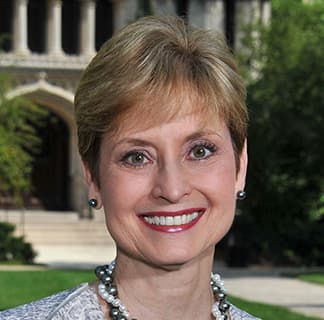National report: U.S. death rates from cancer continue to decline

The latest national statistics show that overall cancer death rates continue to decline. This news is encouraging not only for patients, but also for the doctors and researchers who devote their careers to reducing cancer’s devastating effects.
In its Annual Report to the Nation on the Status of Cancer, the National Cancer Institute reported that from 1999 to 2015, overall cancer death rates decreased by 1.8 percent per year among men and by 1.4 percent per year among women.
From 2011 to 2015, death rates decreased for 11 of the 18 most common cancer types in men and for 14 of the 20 most common cancer types in women. From 2010 to 2014, incidence rates decreased for 7 of the 17 most common cancer types among men and for 7 of the 18 most common cancer types among women.
The decline in cancer death rates reflects significant progress made over the past few decades in cancer prevention, early diagnosis, and treatment. In many cases, cancer death rates have fallen due to public health measures. That is why we support health policy measures such as Tobacco 21 Illinois, which seeks to raise the purchasing age for tobacco products and electronic cigarettes to 21 across the state. Efforts such as these aim to eliminate certain cancer risk factors.
The report also shows that incidence and death rates for all types of cancer combined were higher in men than in women in every racial and ethnic group. For all cancer sites combined, black men and white women had the highest incidence rates compared to other racial groups, and black men and black women had the highest death rates compared to other racial groups. Non-Hispanic men and women had higher incidence and death rates than those of Hispanic ethnicity.
These findings call attention to an important problem of cancer disparities, meaning specific cancers often have a greater impact on particular population groups, striking one racial or ethnic group more severely or more often than another. At the UChicago Medicine Comprehensive Cancer Center, we are using community outreach and engagement to address the unequal burden of cancer carried by many racial and ethnic groups and to achieve health equity.
Despite the remarkable progress we have made with cancer, we must continue to place a high priority on investing in biomedical research―it is our best defense against cancer. Our future depends on it. Because with an aging population, rising healthcare costs, and limited access to care for many, it’s clear that we are going to need better ways to prevent, treat, and diagnose cancer sooner. Our researchers and physicians are up for the challenge and will work hard to minimize cancer’s burden on the nation.
View our 2017 Annual Report to learn how we’re using innovative approaches to cancer from every angle.

Michelle M. Le Beau, PhD
Michelle M. Le Beau, PhD, is the Arthur and Marian Edelstein Professor of Medicine and the director of the University of Chicago Medicine Comprehensive Cancer Center.
Learn more about Dr. Le Beau